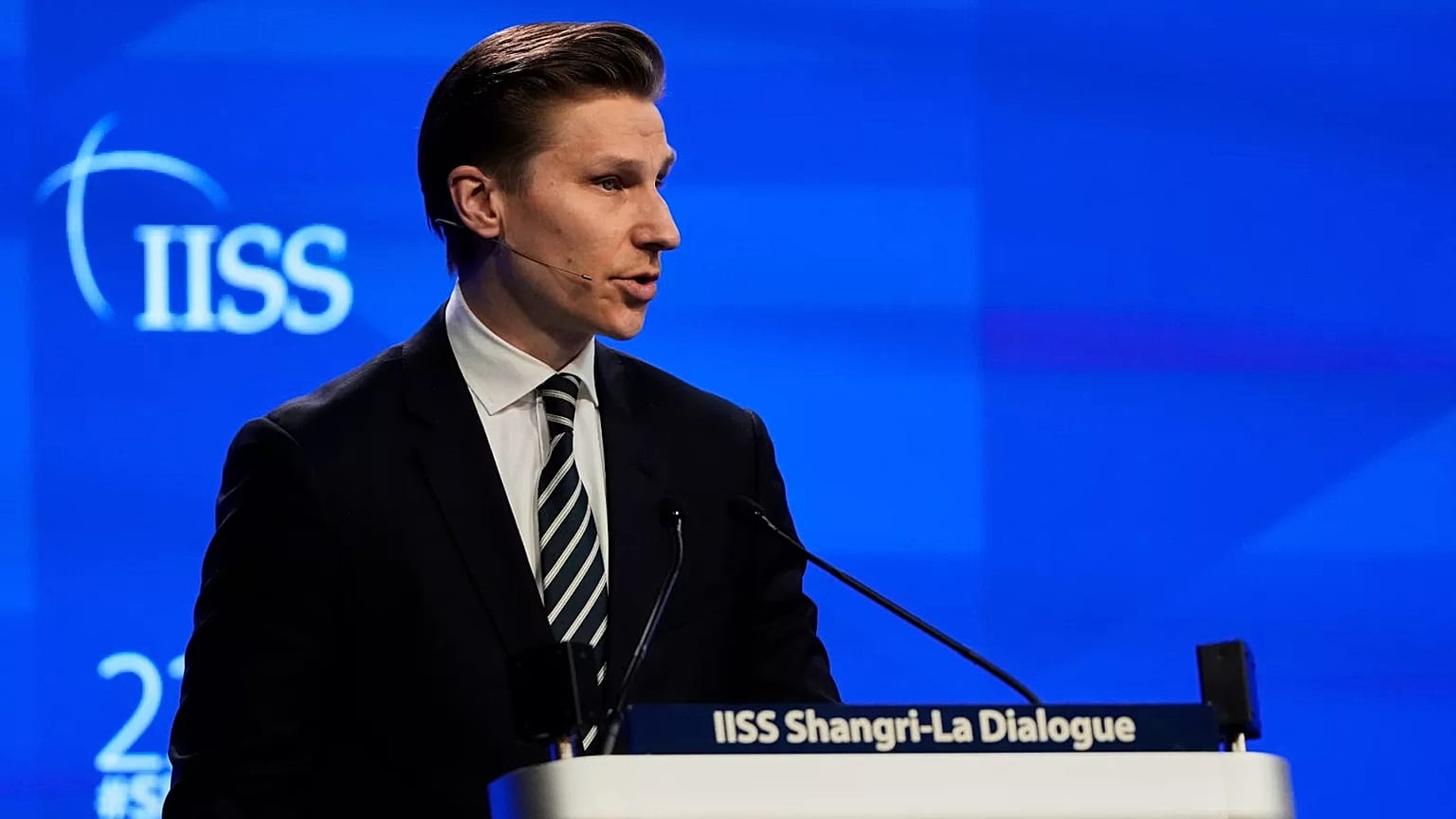Top Stories
Finland Urges NATO to Accelerate Defence Spending Amid Threats

Finland’s Defence Minister Antti Häkkänen has called for a renewed sense of urgency among European and NATO allies regarding defence capabilities. His comments come amid rising incursions into NATO airspace, which are believed to be linked to increasing Russian military activity. Häkkänen emphasized that Europe must act quickly to bolster its defence systems and develop what has been termed a “drone wall” to address these escalating threats.
The need for immediate action is underscored by a shift in the nature of aerial threats. Häkkänen noted, “When they [Russia] were running out of missiles, they started to produce lots of drones, which is why this has changed the threat picture.” This shift has resulted in a series of airspace violations, with drones reportedly entering nations such as Poland and Denmark. The minister highlighted the significant costs involved in neutralizing these drones and the potential hazards they pose to civilian populations.
Häkkänen added, “Everyone has a challenge on how to counter drone threats in a cost-effective way without too much collateral damage, especially if it’s happening nearby the airport.” He pointed out the complexities of engaging drones in urban areas without risking harm to civilians, stating, “It’s hugely challenging to drop a drone in a civil area without collateral damage, using all the force in the military with full spectrum warfare.”
The defence minister warned that Russia is likely to exploit perceived weaknesses in the West. “If they believe the West is a bit weak and politically a bit messed up… maybe not in good shape in defence, and they think they have an opportunity to take some more land again, then they will,” he stated. Häkkänen referred to Russia’s actions in 2014 with the illegal annexation of Crimea and the ongoing conflict that escalated with the full-scale invasion of Ukraine in 2022.
To mitigate these threats, Häkkänen urged European nations to expedite investments in defence. “Real investments. There must be a sense of urgency,” he advised, stressing the importance of collective readiness.
The Drone Wall Initiative
The concept of a “drone wall” is a collaborative effort supported by the European Commission, aimed at integrating detection and strike systems along the borders of at least ten countries, including Finland, Estonia, Latvia, Lithuania, and Poland. Sven Kruck, co-CEO of the German drone manufacturer Quantum Systems, described the initiative as a “system of systems,” emphasizing its focus on reconnaissance, sensor fusion, and integrated defence mechanisms across thousands of kilometres. This project is central to Europe’s defence strategy in the upcoming years, though there have been differing assessments regarding its timeline for implementation.
Latvia’s Prime Minister Evika Siliņa expressed optimism, suggesting a drone wall along the eastern flank could be operational within “one year, year and a half.” In contrast, German Defence Minister Boris Pistorius indicated that such a project would not materialize for “three to four years.” Regardless of the timeline, both NATO and European leaders are increasingly alert to the potential repercussions of Russian hybrid warfare tactics, which include misinformation campaigns and cyberattacks.
NATO’s Defence Spending Commitments
Häkkänen has also called for NATO to commence immediate implementation of a commitment to increase defence spending to as much as 5% of GDP. This agreement was reached at the NATO summit in The Hague in July, where all 32 NATO allies consented to elevate their defence spending from the previous 2% to 5% of GDP, following pressure from US President Donald Trump. The allocation includes 3.5% for core defence spending and 1.5% for related expenditures.
“We’re hoping the new NATO commitment in spending to 3.5-5% is speeding up fast,” Häkkänen stated. He criticized the previous agreement that allowed a ten-year timeframe for achieving 3.5% spending, insisting, “No, you have to start immediately.”
As Finland embarks on this renewed commitment to NATO—having officially joined the alliance in April 2023 alongside Sweden, which will follow in early 2024—Häkkänen noted that there are existing gaps in NATO’s collective defence that urgently require attention. This call for action comes against the backdrop of a shifting geopolitical landscape, where the Trump administration had previously emphasized American defence priorities at home, indicating that European nations must increasingly assume responsibility for their own security.
Häkkänen concluded with a stark reminder of the changing dynamics in global security, stating, “The US says they are shifting the balance to the Indo-Pacific area and their homeland security.” He added, “And we are seeing the results. The Europeans must pay their fair share and buy the equipment to fill the US gaps.”
In this critical period, the actions taken by NATO and European countries will be pivotal in shaping the continent’s defence posture amid ongoing threats.
-

 Top Stories4 weeks ago
Top Stories4 weeks agoTributes Surge for 9-Year-Old Leon Briody After Cancer Battle
-

 Entertainment2 months ago
Entertainment2 months agoAimee Osbourne Joins Family for Emotional Tribute to Ozzy
-

 Politics2 months ago
Politics2 months agoDanny Healy-Rae Considers Complaint After Altercation with Garda
-

 Top Stories2 months ago
Top Stories2 months agoIreland Enjoys Summer Heat as Hurricane Erin Approaches Atlantic
-

 World3 months ago
World3 months agoHawaii Commemorates 80 Years Since Hiroshima Bombing with Ceremony
-

 Top Stories3 months ago
Top Stories3 months agoFianna Fáil TDs Urgently Consider Maire Geoghegan-Quinn for Presidency
-

 World3 months ago
World3 months agoGaza Aid Distribution Tragedy: 20 Killed Amid Ongoing Violence
-

 World3 months ago
World3 months agoCouple Convicted of Murdering Two-Year-Old Grandson in Wales
-

 Top Stories4 weeks ago
Top Stories4 weeks agoNewcastle West Woman Patricia Foley Found Safe After Urgent Search
-

 Top Stories2 months ago
Top Stories2 months agoHike Donegal’s Errigal Mountain NOW for Unforgettable Summer Views
-

 Top Stories2 months ago
Top Stories2 months agoClimbing Errigal: A Must-Do Summer Adventure in Donegal
-

 World3 months ago
World3 months agoAristocrat Constance Marten and Partner Convicted of Infant Murder









